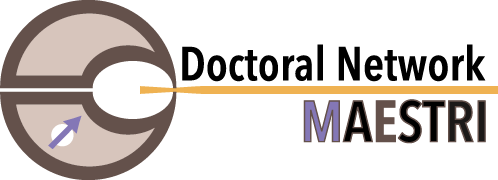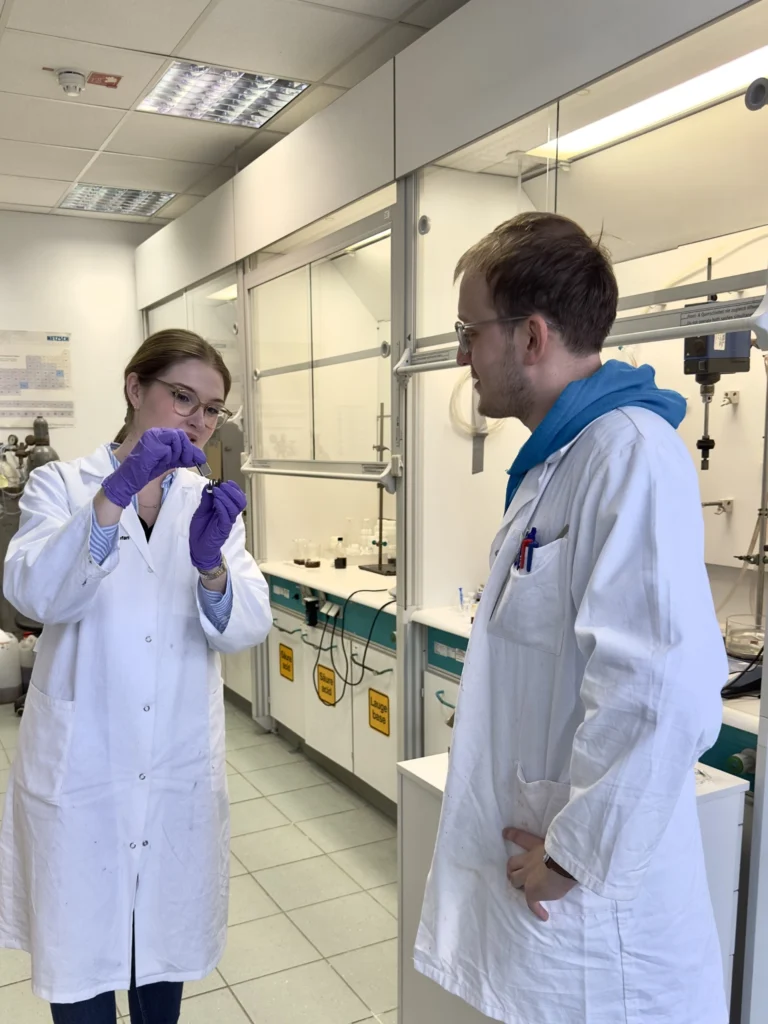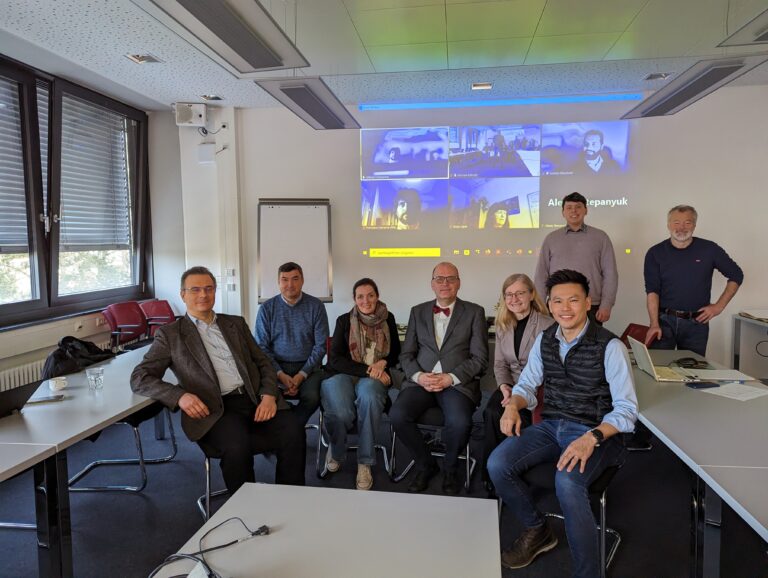MAESTRI is dedicated to training a new generation of experts in soft robotics, with a particular focus on harnessing the unique properties of magnetoactive elastomers controlled by magnetic fields. A total of nine doctoral candidates (DCs) are trained within the MAESTRI, representing seven academic institutions – Ostbayerische Technische Hochschule Regensburg (OTH, Germany), Jožef Stefan Institute (JSI, Slovenia), Christian-Albrechts-Universität zu Kiel (CAU, Germany), University of Ljubljana (UL, Slovenia), University of Vienna (UNIVIE, Austria), University of Southern Denmark (SDU, Denmark), Scuola Superiore Sant’Anna (SSSA, Italy) – and two industrial beneficiaries –Prensilia s.r.l. (Italy) and Wegard GmbH (Germany). Their backgrounds span biology, materials science, physics, and robotics engineering. beneficiaries ooriginating from biology, materials science, physics and robotic engineering. The network also benefits from the involvement of three associated partners, contributing to both research and transferable-skills training.
Overview of the Training School
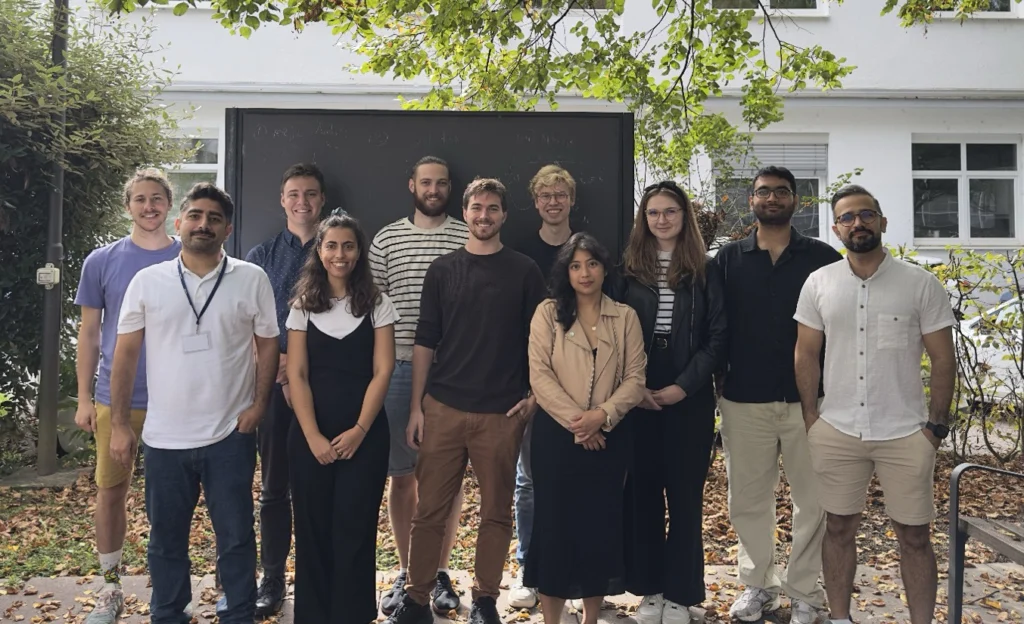
The scientific focus of DTS2 was material synthesis and characterization. Alongside lectures, trainees participated in hands-on laboratory sessions. Afternoons were dedicated to transferable-skills workshops, including sessions on career development, progress assessment, and communication skills.
The event was also open to external researchers. Five participants from OTH, JSI, and Tomas Bata University in Zlín (Czech Republic) joined the nine MAESTRI DCs, further enriching the collaborative environment.
Programme Highlights
Day 1: Synthesis and Functionalisation of Nanoparticles
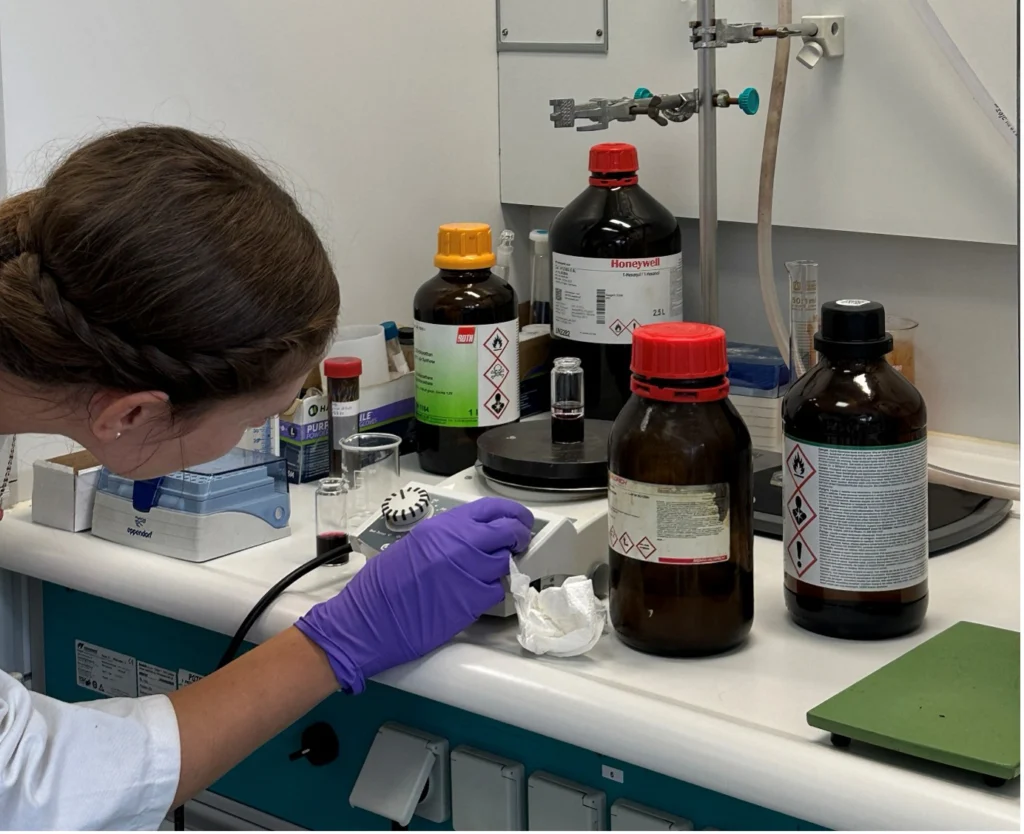
The school opened with two lectures: Prof. Darja Lisjak (JSI) introduced the synthesis of magnetic nanoparticles, followed by Asst. Prof. Slavko Kralj (JSI) on their functionalisation. In the afternoon, DCs shared their experiences on synthesis of magnetoelastic composites during practical lab sessions at JSI’s Department for Materials Synthesis.
Day 2: Structural, Magnetic and Mechanical Characterization
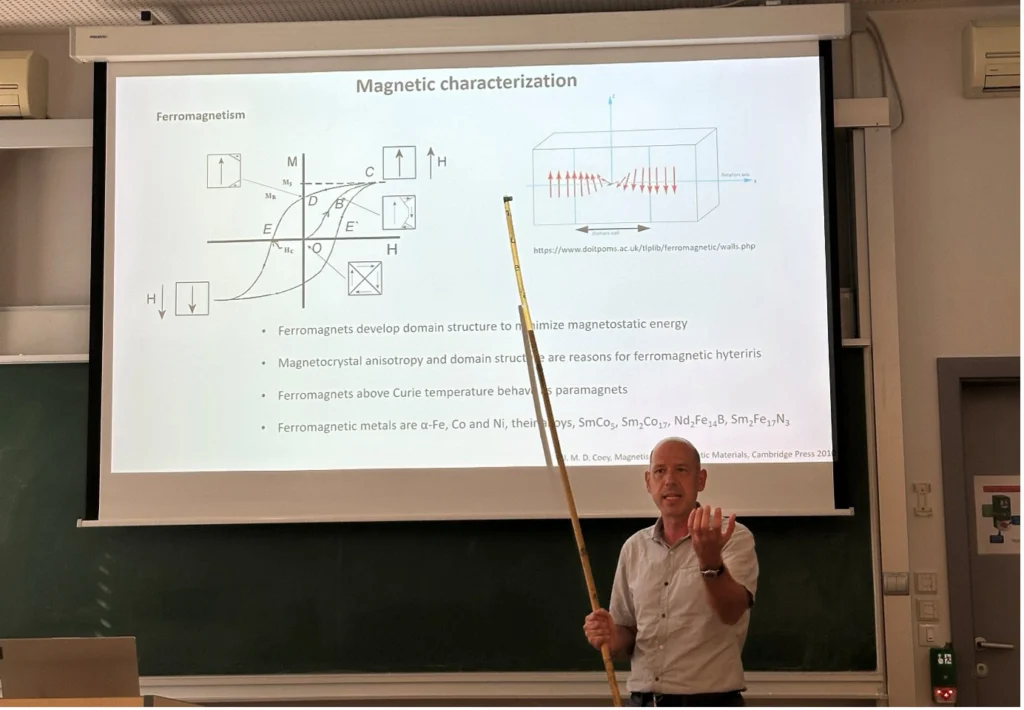
The second day featured lectures by Prof. Darko Makovec (JSI) on (micro)structural characterisation, Asst. Prof. Sašo Gyegrgyek (JSI) on magnetic characterization, and Robinson Guachi (Prensilia) on mechanical characterization of soft materials (delivered online). In the afternoon, the DCs collaborated on creating materials for the MAESTRI website as part of a cooperation workshop.
Day 3: Surface Properties, Fundraising and Business Planning
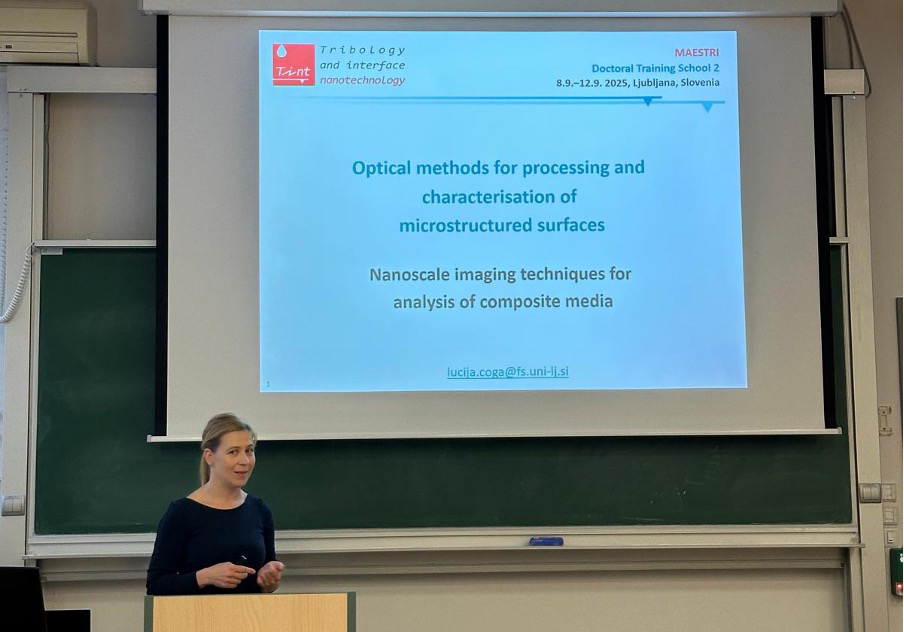
Scientific sessions included a lecture on optical methods for processing and characterizing microstructured surfaces by Prof. Irena Drevenšek Olenik (UL) and on nanoscale imaging techniques by Dr. Lucija Čoga (UL). The afternoon featured a workshop on fundraising and business plan writing led by Amedeo Morandi, CFO of Prensilia.
Day 4: Experimental Workshops on Synthesis and Functionalization of nanoparticles, Scientific communication
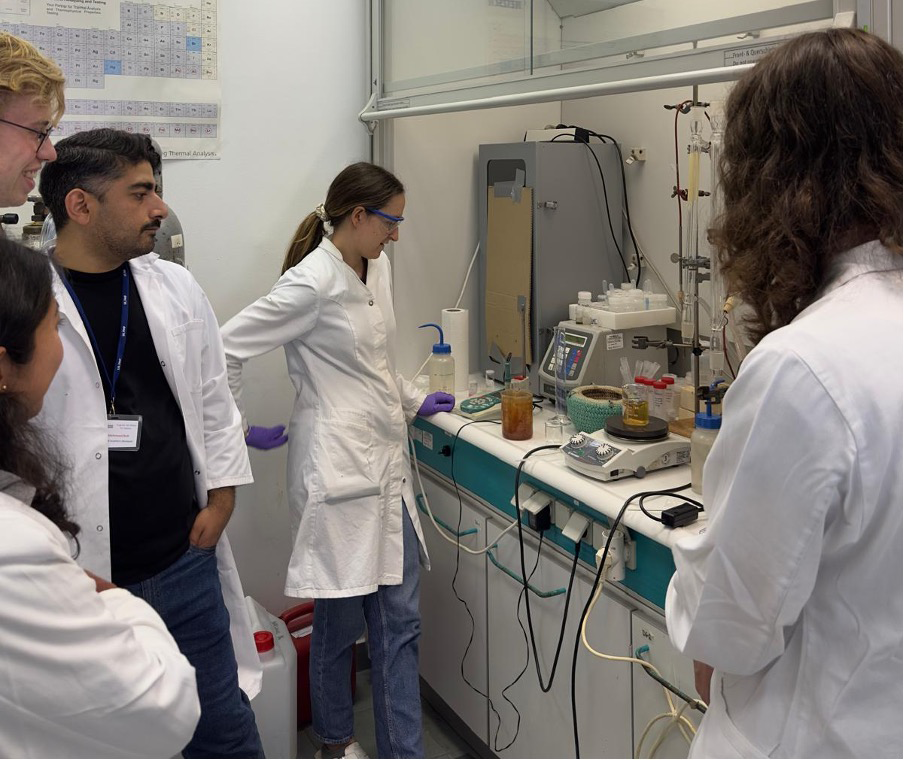
Participants attended practical demonstrations on the synthesis and functionalisation. Additionally, electron microscopes were presented during a guided tour of the JSI’s Center for Electron Microscopy and Microanalysis. The afternoon was dedicated to scientific communication and writing for diverse audiences, led by Jadranka Jezeršek Turnes from Science Engagement & Outreach.
Day 5: Experimental workshops on Optical and Nanoscale Characterization, Assessment Sessions
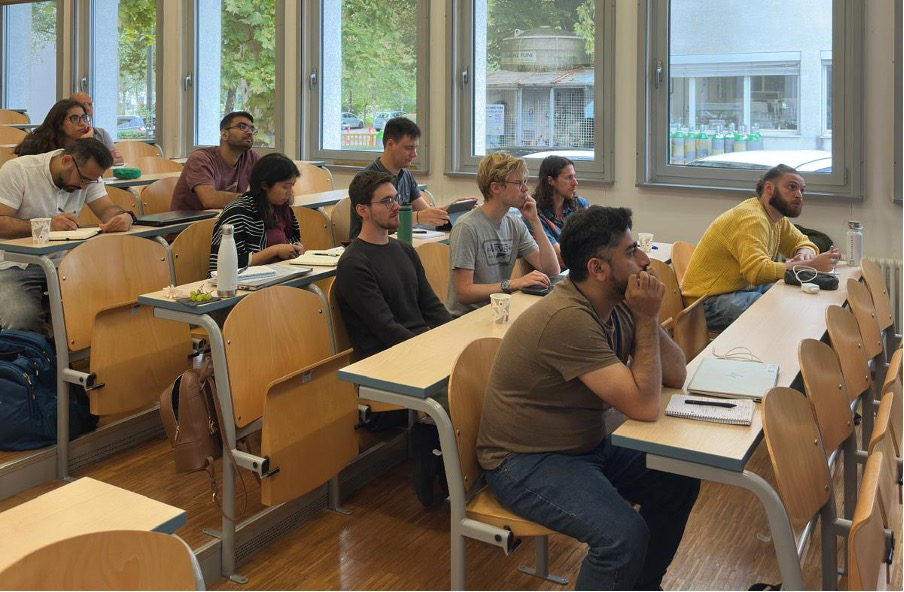
The final day focused on hands-on experimental training, including dynamic light scattering measurements and atomic-force microscopy. In the afternoon, MAESTRI DCs held assessment sessions to reflect on the outcomes of the first MAESTRI Annual Conference, review thesis progress, and evaluate their Personal Career Development Plans (PCDPs). These sessions were moderated by Prof. Irena Drevenšek Olenik.
